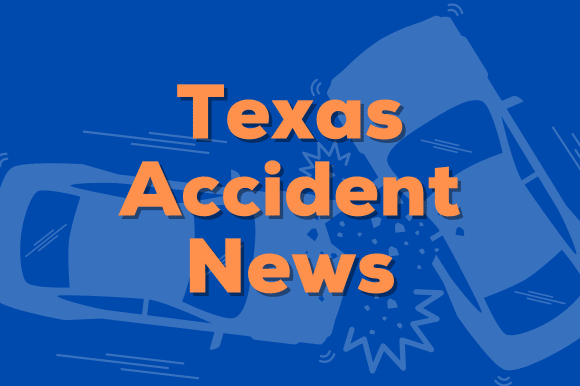WASHINGTON, DC – JUNE 26: Care workers with the Service Employees International Union (SEIU) chant, rally outside the US Capitol on June 26, 2025 in Washington, DC. They came to denounce the impact to patients, families and workers if Republicans cut Medicaid, healthcare and SNAP to pay for tax cuts for the wealthy. (Photo by Tasos Katopodis/Getty Images for SEIU)
Colorado State Treasurer Dave Young’s sister Dorothy has relied heavily on Medicaid “for health care and for life-sustaining support” as she lives with severe cognitive and physical disabilities.
“It really has been a true lifeline for the entire family,” Young said in a press call Thursday. “We have tried to provide care for my sister, and her needs are so demanding, so extreme, that a family by itself can’t manage to make this work. We need help, we need support, we’ve thrown ourselves into this to the extent that we can, but many, many other families are in similar situations.”
Young said that when Medicaid cuts hit Colorado in the past, the state could no longer provide residential care for his sister. She went through 20 different residential facilities in a span of 18 months, all of which were “inadequate” because they did not have proper funding, he said.
“Often, she was ejected from a placement because she overwhelmed the providers, sometimes without even a phone call,” Young said.
Young and financial officials from four other Democratic-led states participated in a call hosted by Americans for Responsible Growth, a national advocacy group that works with state financial leaders. They warned about how Republicans’ recent policy law, called by President Donald Trump the “big, beautiful bill,” will negatively affect Medicaid and Medicare recipients ahead of the 60th anniversary of the programs.
The law cuts more than $1 trillion from Medicaid, a state-federal health insurance program for people with low incomes.
Dave Wallack, executive director of Americans for Responsible Growth, said that since the Trump administration took office, Republicans have “systematically gutted health care programs, fired thousands of federal workers, and slashed more than a trillion dollars for Medicaid, the largest cut in the program’s history.”
Wallack said the cuts will lead to 17 million Americans losing health care coverage and more than 50,000 preventable deaths annually. Young said in Colorado, more than 375,000 recipients could lose Medicaid coverage. Democratic officials from New Mexico, Illinois, Minnesota and Maryland all said that rural communities in their states will be hit hardest by the cuts, and they will feel the effects first.
Rural hospitals at risk
Laura Montoya, the New Mexico state treasurer, said her state is the No. 1 recipient state for Medicaid in the nation, and 80% of the babies born in New Mexico are born into Medicaid. She said the federal law’s changes to Medicaid will “force hospitals and clinics to either raise premiums or copays or shut down entirely,” and 15 hospitals in rural communities are already at risk of closing their doors.
“Our state’s entire provider network depends on the state’s current Medicaid coverage landscape,” Montoya said. “These cuts will increase health care costs for all New Mexicans regardless of Medicaid enrollment, not to mention more uninsured individuals could end up skipping preventative care leading to worsened health outcomes, higher cost for emergency care, and more crowded emergency rooms and urgent care facilities, placing even more strain on an already overwhelmed system.”
The shift of responsibility for states to fund Medicaid could also destabilize New Mexico’s entire support network, including housing assistance, early childhood education, public safety and economic development, Montoya said. The New Mexico Legislature passed a measure creating a Medicaid trust fund to safeguard services amid federal cuts, she added.
Illinois State Treasurer Michael Frerichs said 44% of the Medicaid recipients in his state are children, 9% are seniors, and 7% are adults with disabilities. Nine rural hospitals in Illinois, all in Republican districts, are at risk of closing because of funding cuts, he said.
“When hospitals close and health care providers cut back, people lose their jobs. They lose their income, and their health insurance,” Frerichs said. “Illinois’ economy will be destabilized. The cruel, inhumane Trump big bad budget bill will wreak havoc across Illinois for years to come.”
Julie Blaha, Minnesota’s state auditor, said about 25% of Minnesotans are enrolled in the state’s Medicaid program, which also supports 30% of births. For Black and Indigenous communities, those numbers are even higher: The state’s medical assistance program covers 80% of Black babies born in the state and 90% of Indigenous babies.
Blaha said it is more cost-efficient to keep people on these health care programs in a stable place, as it’s more expensive “to pull somebody up who’s fallen through.”
“It is time to stand up and tell Congress and tell Trump to roll back these terrible cuts and try to stop the avalanche before it crushes us all,” Blaha said.
Brooke Lierman, the Maryland state comptroller, said 42% of her state’s population is supported by Medicaid or Medicare. She said the two programs were designed to take care of “vulnerable Americans” who would be “sicker and worse off” without the coverage they provide.
“These programs are economic powerhouses that drive prosperity in our communities and strengthen our state’s fiscal foundation,” Lierman said. “Cutting Medicaid is both fiscally reckless and morally bankrupt, abandoning our most vulnerable residents, including our seniors and people with disabilities, while destroying the economic foundation that so many of our communities depend on.”
‘Among the greatest policy achievements’
Health care is a “major economic driver” in Colorado, Young said, as hospitals employ about 1 in 5 Colorado residents and generate $1 billion in tax revenue yearly. Reduced federal investment in health care will lead to clinic closures and reduced tax revenue that will affect quality of life for “Coloradans of every age and income bracket,” he said.
“Colorado cannot afford to downsize our health care sector,” Young said. “We’re already facing dire workforce and health care shortages, especially in rural and frontier communities. The state can’t make up for these losses either.”
Medicaid and Medicare are “among the greatest policy achievements in American history,” Young said, as the programs strengthen health care systems and lift people out of poverty. He said the programs can be strengthened while saving money, but “this slash and burn technique” will be “devastating.”
“When people get the care they need, they hold down jobs, they provide for their families and avoid catastrophic medical debt,” Young said.
Colorado Newsline is part of States Newsroom, a nonprofit news network supported by grants and a coalition of donors as a 501c(3) public charity. Colorado Newsline maintains editorial independence. Contact Editor Quentin Young for questions: [email protected].
This post was originally authored and published by Lindsey Toomer, Colorado Newsline from via RSS Feed. to get your news feed on Nationwide Report®.






















![Violent Bicycle Accident on Central Avenue Kills 1 [Albuquerque, NM]](https://www.nationwidereport.com/wp-content/uploads/2025/07/bike_shadow-1024x759-1-120x86.jpg)

